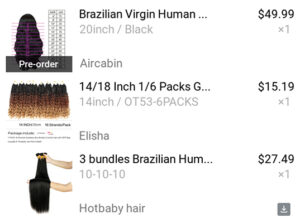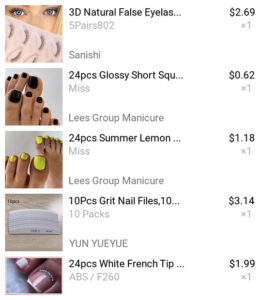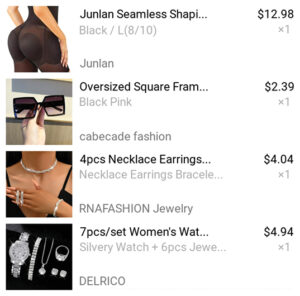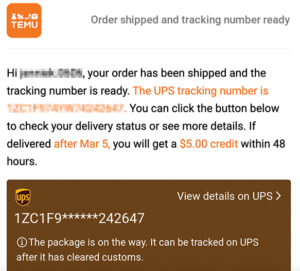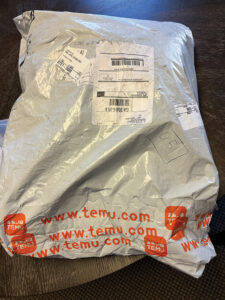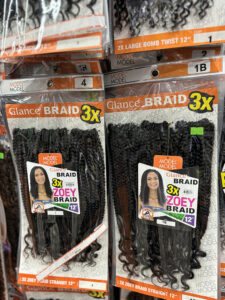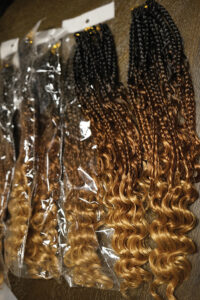Temu Hands-On Report
Will it be the Goliath that Threatens Beauty Supply Business?
You might’ve noticed that customers at your beauty supply started to mention “Temu”. Some people say it’s too expensive compared to Temu and ask for outrageous discount. Several times a day on social media, there’s a parade of ultra-low-priced goods under the orange Temu logo. It’s tempting enough to give it a shot out of curiosity, but many people are hesitant to do so because of the horror stories on the media, frequently citing “poor quality, stolen personal information, and stolen cards.”
We heard you. And we took an action. Our editorial staff signed up for Temu, the rising e-Commerce giant from China, and analyzed every aspect of Temu, from placing an order, receiving it, checking the quality, to refunds.
Discovering Temu’s identity
Last February, there were many eye-catching ads that ran during the Super Bowl, the largest sporting event in the United States. Some of those were for Temu, an online discount marketplace.
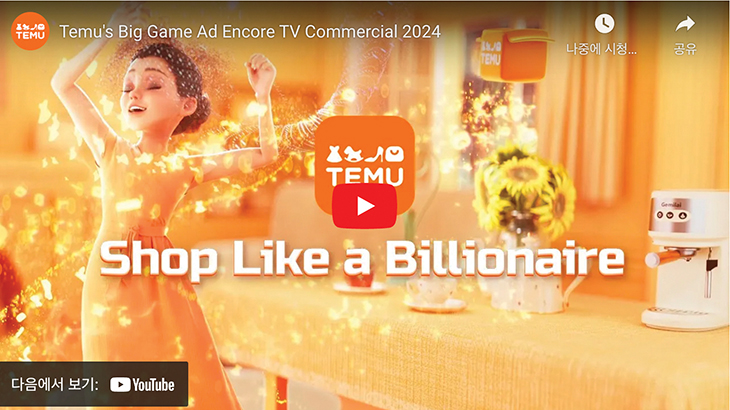
The content of a 30-second ad is so simple. A girl shopping through the mobile app spruces up her home with $0.99-$9.99 decorations and transforms herself into a Disney princess with a $9.99 dress. Then, she takes to the streets to give gifts to various people she meets, each with a price tag ranging from $0.99 to $9.99. The background music is also straightforward. “Woo-hoo, Temu! Download the Temu app and shop like a billionaire.”
Temu aired five 30-second ads in this year’s Super Bowl, which made its second appearance after last year’s. Given that Super Bowl ads currently cost between $6.5 million and $7 million per a 30-second segment and adding the additional $15 million in giveaways and coupons that Temu distributed as part of the Super Bowl campaign, Temu spent tens of millions of dollars on its Super Bowl promotion. It may seem reckless, but Temu’s aggressive marketing has been proven a success. On average, a whopping 40% of Americans watch Super Bowl every year. Immediately following the last Super Bowl even, Temu made the #1 free downloaded app in the U.S., a meaningful return for the investment.
Most business owners probably have heard the name Temu by now. It’s getting mentioned more often than Amazon by customers in a beauty supply store these days. It’s even been featured in a Super Bowl ad that promises to “shop like a billionaire” during this recession, so anyone who’s seen the ad is bound to at least wonder about Temu. Once you venture into Temu’s website, you’ll be amazed at the vast array of items available. From clothing, kitchen appliances, electronics, outdoor furniture, power tools, to baby products, you name it, they’ve got it. The second surprise would be the ridiculously low price. Necklaces for $1, sneakers for $8, wireless keyboards for $10,and so on. Everything is incredibly cheap, and, as their slogan suggests, you can fill your cart without spending a fortune. That’s just a beginning. There are coupons available via email and roulette-style games, making it possible for kids with little money to shop what they want.
They say everything good has a catch… What about Temu?
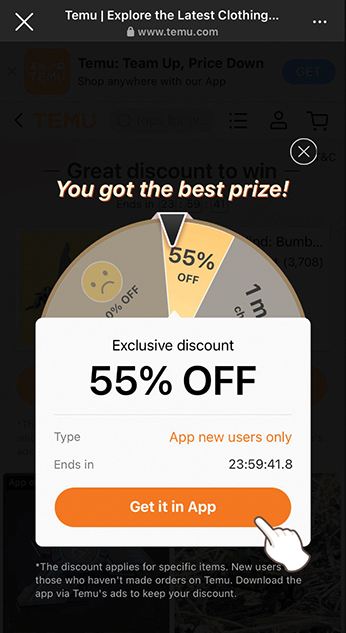
Roulette game for coupons pops up when you access Temu app or homepage.
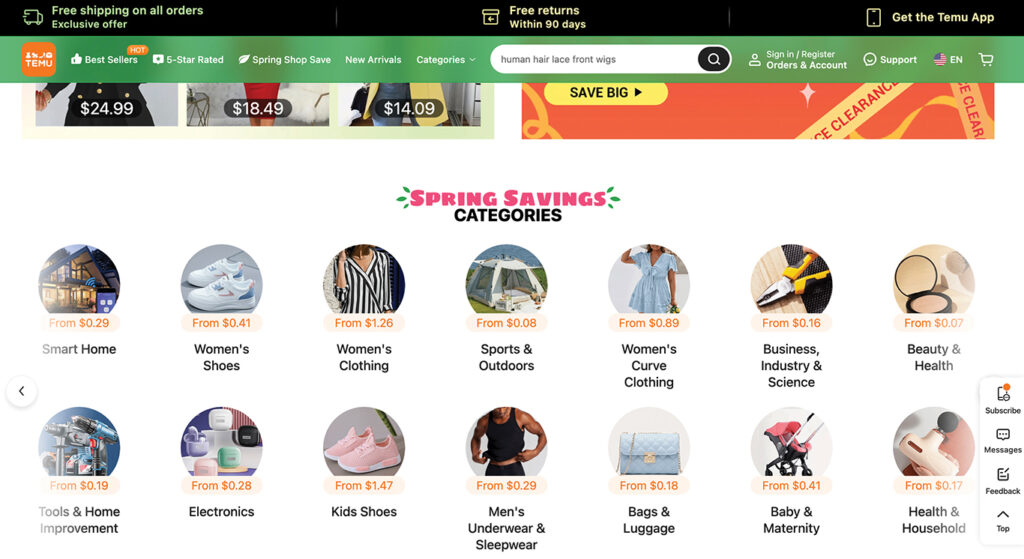
Temu website offers sneakers for 41 cents, women’s apparel for 89 cents, handbags for 18 cents, and so many more at incredible prices.
Rundown of TEMU
- September 2022
It launched in the United States. This means that the company is less than two years old. So far, it has expanded to 49 countries. - Optimizing your purchase and delivery from Chinese goods
It’s a Chinese online shopping platform that launched in the U.S. It differs from other online retailers in that China-based sellers sell and ship directly to customers, bypassing other distribution channels.
- TEaM Up
Many Americans are confused about how to pronounce the name, but TEMU stands for “Team Up, Price Down” and reflects Temu’s goal to deliver cost savings by achieving economies of scale. - PDD (Pinduoduo) Holdings Inc.
Temu’s parent company is a Chinese e-commerce company Pinduoduo. Founded in 2015, Pinduoduo has grown to become China’s largest e-commerce platform with a strategy of cutting out the middleman and connecting consumers in small and medium-sized cities in China and producers directly. Its subsidiary, Temu, inherited its parent’s strategy and focused on “low price marketing.” - 194.3 billion
The market capitalization of PDD Holdings as of January 2024 surpassed that of AliExpress ($185.6 billion). Temu’s ultra-low-cost strategy coupled with its aggressive marketing owes to its well-capitalized parent company, PDD Holdings. - No. 1 in the U.S., No. 8 globally
Temu’s app download ranking after the Super Bowl ad soared. Temu’s growth was drastically fueled by Super Bowl ads last year and this year. According to Apptopia analysis, the average user spends 7-8 minutes longer on Temu’s app compared to competitors like Amazon, eBay, and AliExpress. - 52 million customers
As of January 2024, the number of monthly active users in the U.S. exceeded 50 million. This is a 300% year-over-year increase (based on research by market intelligence firm Sensor Tower).
Behind Temu’s growth
Just a few years ago, AliExpress was the leading Chinese E-Commerce seller in America. It was launched in 2010, well before Temu, and sells a similar product category. But Temu, a newcomer in late 2022 has taken over the e-commerce market with exponential growth.
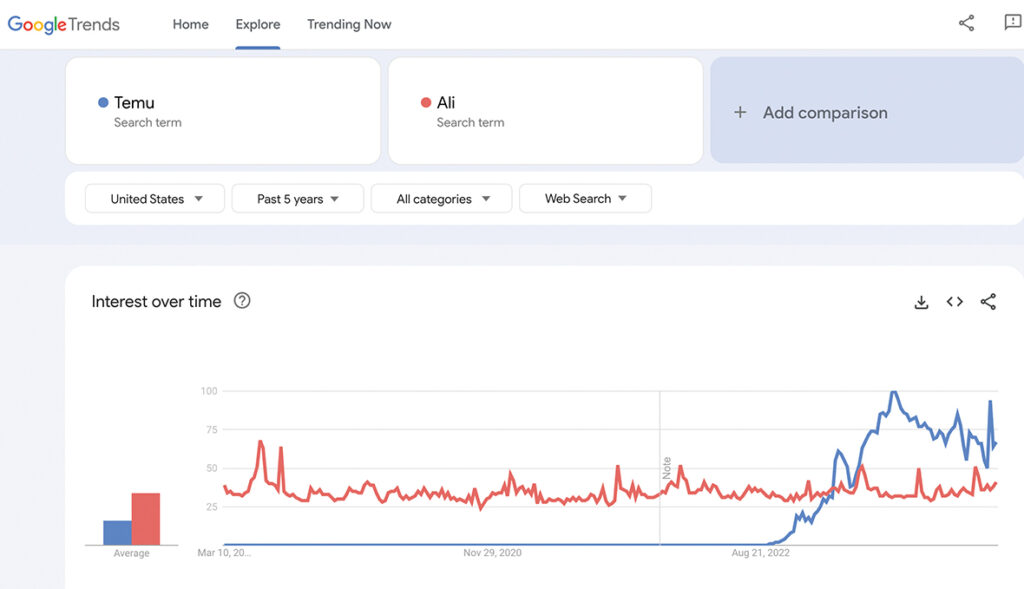
Changes in search volume for Ali and Temu on Google Trends
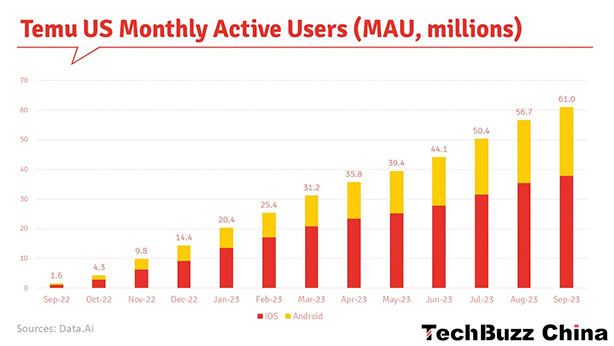
Source: Data. Ai. Temu’s monthly active users in the U.S. on the rise
Temu’s rapid growth is often attributed to three factors:
- Aggressive marketing with Super Bowl ads and social media
Up to 90% off, free products for referring friends, Temu credits earned through mini-games, and much more.
- Ultra-low price, free shipping, cutting out the middleman
Low and free shipping is also available at AliExpress, but Temu offers an estimated delivery date and easy shipment tracking.
- Jaw-dropping shipping and refund policies
– credits for late deliveries
– full refund if item is lost or damaged
– full refund or free reshipment if not received within 30 days
– free returns within 90 days of arrival
(Note that AliExpress offers free shipping with no minimum quantity while Temu requires a minimum order of $10)
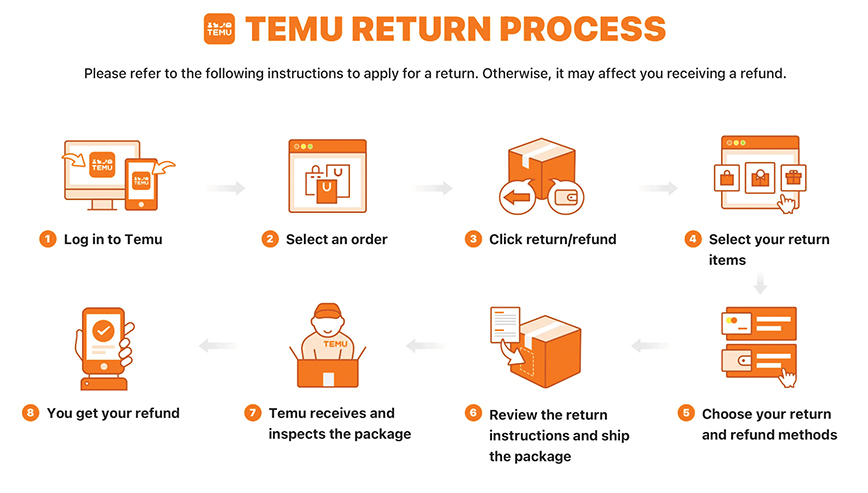
The quality of the products sold on Temu is “hit or miss,” according to numerous user reviews. Some say they bought a wall hook that doesn’t stick, others say a blender doesn’t grind. It’s not uncommon to get a product totally different from what you ordered. Of course, sometimes you’ll get lucky and find a great deal.
It’s the unimaginably low price that makes it worth taking a chance. The offer is too promising to miss, so Temu is constantly encouraging impulse buy.
Temu in action
There are two reasons why new users are hesitant to order with Temu, even at its unbeatable price. The first is the long-standing perception of “Made in China” products. Often, low price means inferior quality. Would I get something that works? It’s shipped from China. Can I still get it on time? The second is privacy concerns. There are already a lot of stories out there about people who have placed orders and had their personal information stolen or money taken out of their accounts.
So, BNB gave it a try with items often carried at beauty supplies. This was to gauge how long it takes to ship, if the item is as described, and how the quality compares to products available at beauty supplies.
1. Order on 2/20
I split my orders into hair and other items including eyelashes, nails, and jewelry. Most items were $10 or less, except for hair products. I was given an estimated delivery date of 3/7 for the hair and 3/5 for the rest and told that I would receive a $5.00 credit within 48 hours if they are delivered late. This is one of Temu’s standout policy among Chinese direct-to-consumer platforms.

2. Shipped on 2/21
The biggest weakness of online shopping, not to mention international, is a long wait. In Temu’s case, they sent an email the very next day saying that they shipped the order, so it’s clear that they cared about speeding up the process. When I looked up the tracking number, I saw that it’s flying directly from China.
3. Received on 2/28
I received my Temu haul in a week. This is very good compared to the one- or two-month delivery time from China in the past. However, after arriving at the airport in the U.S., it traveled through three states (Illinois, Tennessee, and Georgia). Understandably, the package came in rough shape. Somehow, even though I ordered them separately, they were all packaged together in one package, and the packaging of individual item was flimsy.
Now let’s take a look at the products. First, the total of 8 items, including eyelashes, nails (finger and toe), and nail files, cost $16.95. Temu says I received a $55.73 discount on a total of $71.58 original price. Each item price rangedfrom $0.62 to $1.18 for toenails, $0.75 to $1.99 for press-on nails, and $2.69 to $3.49 for eyelashes, for your information.

Next up is the fashion accessories. The total of 10 items cost $49.42, a $171.91 discount from $218.09 original price (that’s almost 80% off), including a hat for $6.29, sunglasses for $2.39, sandals for $9.19, a 7-piece watch and jewelry set for $4.94, and satin bonnets from $1.34 to $2.69. Most of these items are sold at any beauty supply store, but they’re more affordable at Temu. The packaging was flimsy, but the quality didn’t look too bad. Unless we’re super lucky, the fashion accessory category at a beauty supply should suffer from the Temu’s rise.

We ordered three highly ranked best-selling hair products from Temu and sought the opinion from a hair expert and retail store manager to verify the quality.
The first item is the Brazilian Virgin Human Hair Wig with Body Wave Curls, featuring 100% human hair, glueless, elastic net, free to dye and iron, pre-plucked hairline, among other things. The price was $49.98 for a 20-inch length wig, at 13% off. It’s not a huge discount for Temu’s standard.
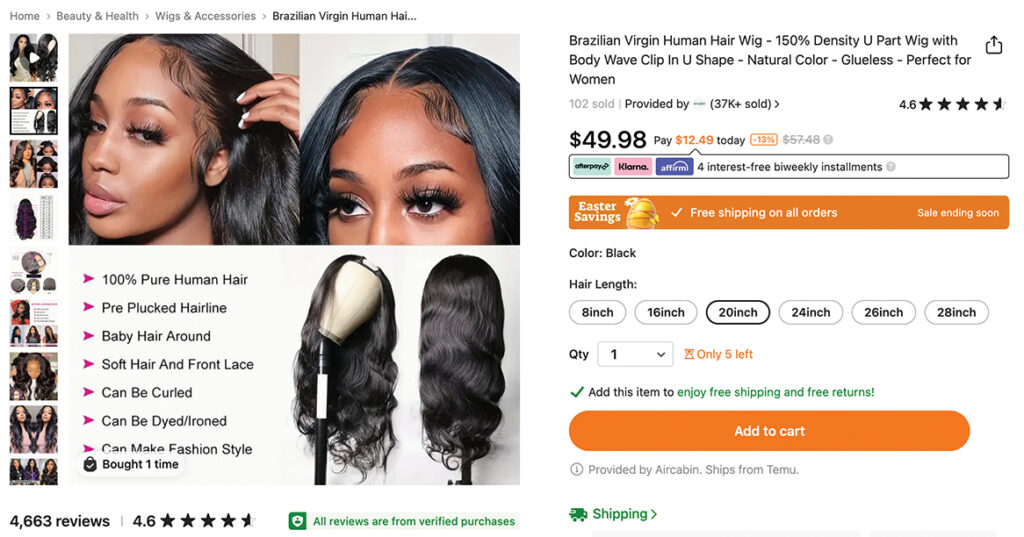
Our hair expert say that the purchased U-part wig are less preferred configuration than lace wigs, but the hair quantity is fine. The retail manager grabbed a wig that looked similar and compared head-to-head. “It’s a human hair wig of the same length, but the difference in hair quantity is visible. Temu’s wig (on the right) is clumpier. The price of human hair wigs in beauty supplies has come down a lot lately. If a beauty supply wig is only $5-$10 more expensive than a Temu wig, which would you buy?” The difference is obvious at first glance.
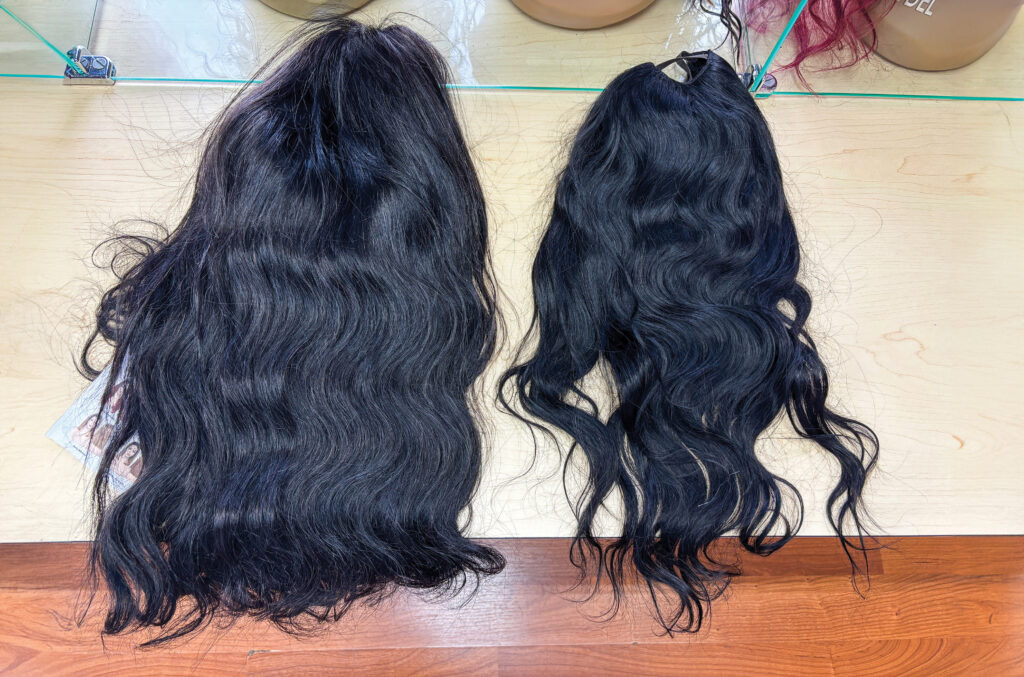
Human hair wigs available at the beauty supplies on left, and Temu products on right.
The second match-up is the Brazilian Human Hair Weave 3X Bundle. The product description included double weft, machine weaving, one directional cuticle, thick ends, among others. The original price was $107.81, but with a 74% discount, we could get it for less than $30.
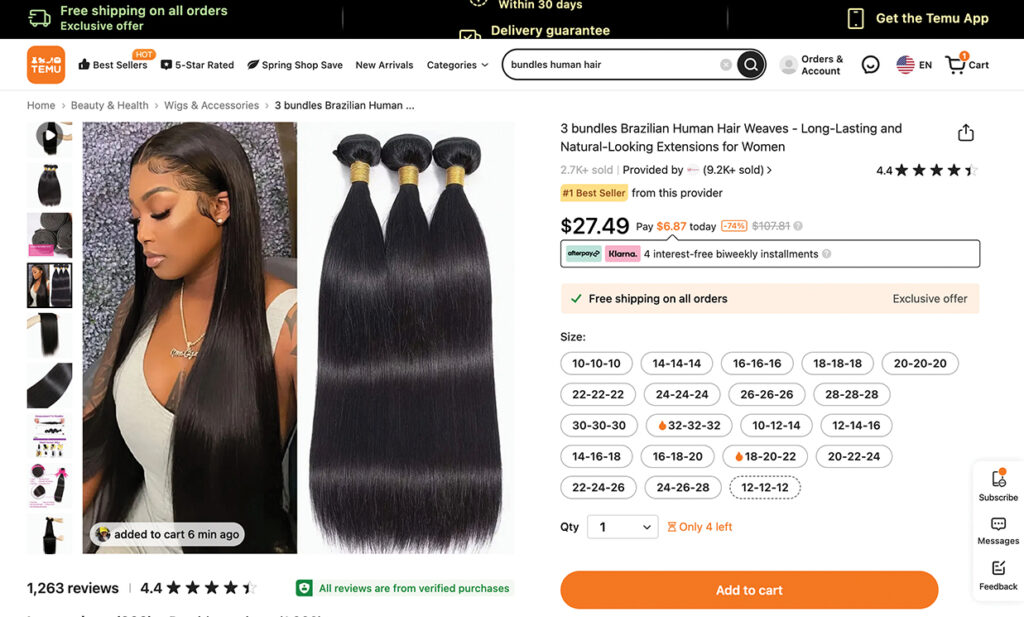
The reactions from our hair professional and the retail manager were identical. “The hair ratio is not good. Too many short hairs, and the texture is grainy and fluffy.” They expected it to be very rough after just one wash.

If you bend the hair, you can see that you have a high percentage of short hair strands.
The last thing we wanted to compare was the Goddess Box Braid Crochet, which was $14.79 for a pack of six braidsof 14-inch length, including a crochet hook.
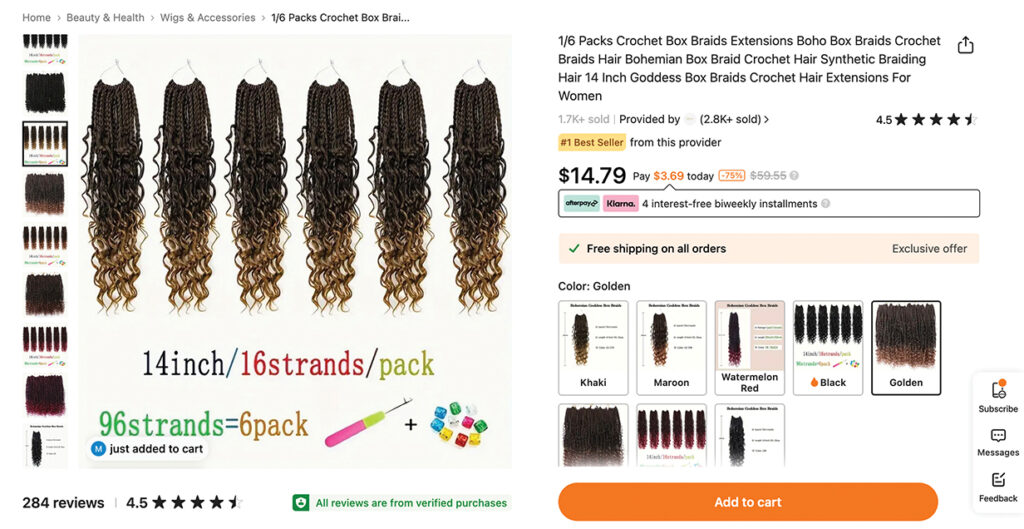
Even for synthetic hair, it appeared, even to our untrained eyes, too shiny, like a Barbie doll’s hair. The hair expert says that while the knot is neat, the curl is uneven, and the material is more likely to catch fire. The trend these days is to use flame retardant material for safety (and to avoid a product liability lawsuit), but it’s made of a material that Korean companies don’t use. We lit it up for a test. The result is shown in Photo 2 below.
At retail, a pack of three braids of good quality and packaging usually sells for $7.99 to $10.99, so Temu’s price is not that attractive for the quality. I personally wondered what the original price (before the discount) of $59.55 was based on.
- beauty supply retail products
- Temu products
- Flame retardant test. It is of a highly flammable material that will lit instantly and continue to burn.
The bottom line is that beauty supplies have competitive edge over hair products both in terms of quality and price-performance. However, this fact is not widely known. Some retailers strategically carry Temu products for comparison purposes. That could be a great strategy.
4. Returns and refunds
The problem with online shopping is that returns and refunds can be lengthy and tricky. Temu has made significant improvements in this regard. Temu’s policy is to accept free returns within 90 days of arrival.
We tried to return a $9.19 pair of sandals. The return was approved instantly and ‘No need to return’ message appeared. Temu suggested that we could keep it, donate it, or recycle it. The $9.83, including the sales tax, was immediately refunded to my payment card.

Additionally, I applied for a refund for the human hair wig, which was the most expensive item in my purchase at $49.99, and two options were given. We could pay a $7.99 return fee and receive a full refund by returning via USPS or UPS, or a partial refund of $10.69 by choosing “partial return” without having to send the product back. Customers who want to avoid the hassle may opt for a partial refund.

Full refund methods

Partial refund method
Free returns, an easy return process, and a full money-back guarantee are probably the obvious draws for shoppers. Beauty supply retailers might need to step up on their return/refund policies.
Temu’s limitations and outlook
After purchasing a product from Temu, my email inbox was flooded with shipping information, discounts, coupons, and more from Temu.
- Inbox full of Temu emails
- Various discount coupons offered by Temu
According to ad intelligence platform MediaRadar, Temu spent $505 million on advertising and promotions last year, a 1,000% increase in marketing budget. They tell consumers to shop like a billionaire, and Temu invests like a billionaire in marketing. This has made them a threat in the US (and South Korea) for online retailers in a short period of time, but it remains to be seen if they will reap what they sow. There are several reasons to doubt Temu’s viability.
1. How long can ultra-low prices last?
Unless you’re a literal fountain of fortune, ultra-low prices can’t last forever. It’s unclear what the future holds for Temu’s business after its heavily capitalized marketing strategy to attract customers ends.
Plus, the logistics costs are not negligible. According to data compiled by Cargo Facts Consulting, Temu’s average daily delivery volume is about 4,000 tons, which is equivalent to about 40 Boeing 777 freighter flights per day. Air freight rates departing from China have seen increases lately. Temu is exploring alternatives such as ocean freight, opening overseas warehouses, and leasing cargo planes, but in any case, the burden of higher logistics costs is likely to stifle Temu’s ultra-low cost.
2. Growing calls for exclusion from the ‘de minimis exemption’
Temu’s exponential growth despite international shipping is due in part to a loophole in the U.S. tariff system called the “de minimis exemption,” which exempts packages valued at $800 or less from tariffs if they are sent to individuals. Recognizing this, the Congress has introduced bipartisan legislation that would exclude all Chinese goods from the de minimis exemption. According to the House committee report, Gap and H&M paid $700 million and $205 million in import duties in 2022, respectively, while Temu and Shein, shipping directly to customers in de minimis amount, paid literally nothing.
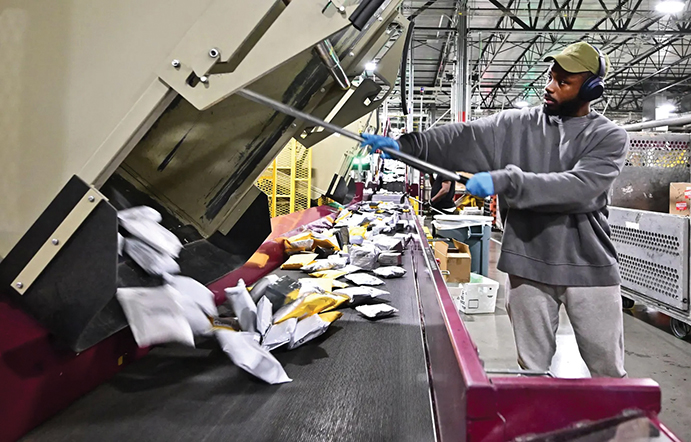
©Getty Images.
Last year, at least 1 billion small packages from Chinese retailers like Temu and Shein entered the U.S. through a de minimis trade loophole.
3. Reputation of “Made in China”
As we’ve discussed above, Temu is a system where abroad sellers ship directly to U.S. buyers without any middlemen, so you can buy products at a lower cost than you can imagine. However, there is a clear downside to the lack of middlemen. There are a lot of so-called “knockoffs. Not all of them are knockoffs, of course, but Temu only provides a platform for sellers to list their products and doesn’t verify them, so there’s always a chance that the products are counterfeit with fake photos and descriptions. In fact, the phrase “Temu Victim” has become a popular search keyword, as purchases from Temu are frequently broken, damaged during shipping, plagued with safety issues, and allegedly fake.

©Kennedy News & Media
A woman allegedly received 14 stitches after cutting her foot on a sharp edge inside a boot she bought from Temu.
4. Privacy concerns
Many consumers are reluctant to use Chinese e-commerce platforms because their mobile apps have reputation of stealing user information. Previously, Temu’s parent company Pinduoduo was accused of embedding malicious software in its apps that stole users’ personal information. In fact, many social media posts warn of Temu’s data breach, including anecdotes of fraud and unauthorized credit card transactions. Recently, Temu was also hit with a class action lawsuit in Illinois over data privacy concerns.

Complaint filed last November by Illinois law firm Hagens Berman on behalf of seven named plaintiffs and unnamed residents of Illinois, California, Massachusetts, and Virginia
5. Ethical issues
The United States has banned imports of products from Xinjiang, citing abuses against Muslim Uyghurs in the region. On February 25, some members of Congress, including Republican Blaine Luetkemeyer, asked the Department of Homeland Security and other government agencies to place Temu on the violators list under Uyghur Forced Labor Prevention Act (UFLPA). This is a first for a distributor rather than a manufacturer. Temu refutes these allegations as unfounded, but a report by the U.S. House of Representatives Select Committee on the Chinese Community Party found that Temu is failing to adequately verify that their products are free from forced labor. If Temu is placed on the list, it will face an import ban in the United States.
Whether Temu will overcome all these obstacles and become the Goliath that shakes up the beauty supply industry remains to be seen. But you can only be as prepared as you know. It seems necessary to know and let others know about the controversies surrounding Temu so that our valued customers don’t become “Temu victims.” Wholesale businesses should focus on maintaining product quality, developing new products, and promoting them appropriately while retail stores should actively engage in customer services such as professional product management and friendly service. Remember. David beat Goliath in the end.
